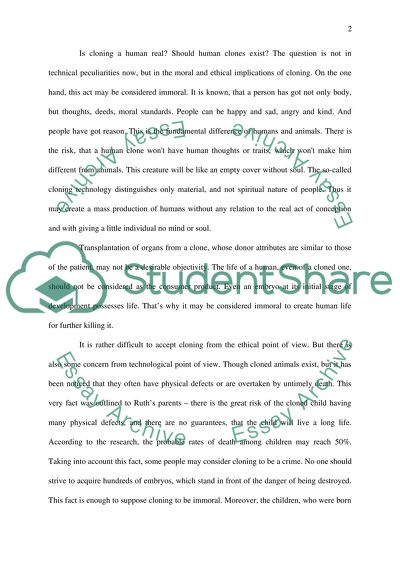Cite this document
(“Ethical Problems of Cloning Essay Example | Topics and Well Written Essays - 2000 words”, n.d.)
Retrieved from https://studentshare.org/miscellaneous/1514619-ethical-problems-of-cloning
Retrieved from https://studentshare.org/miscellaneous/1514619-ethical-problems-of-cloning
(Ethical Problems of Cloning Essay Example | Topics and Well Written Essays - 2000 Words)
https://studentshare.org/miscellaneous/1514619-ethical-problems-of-cloning.
https://studentshare.org/miscellaneous/1514619-ethical-problems-of-cloning.
“Ethical Problems of Cloning Essay Example | Topics and Well Written Essays - 2000 Words”, n.d. https://studentshare.org/miscellaneous/1514619-ethical-problems-of-cloning.


